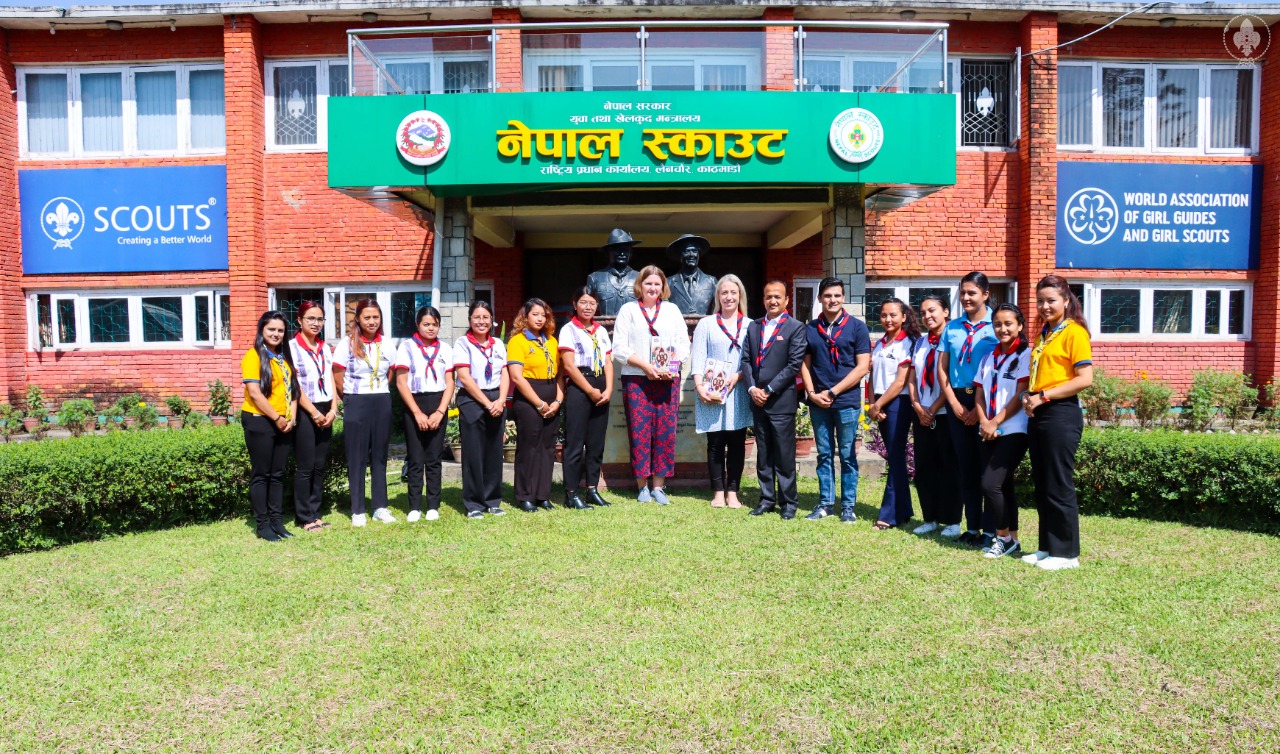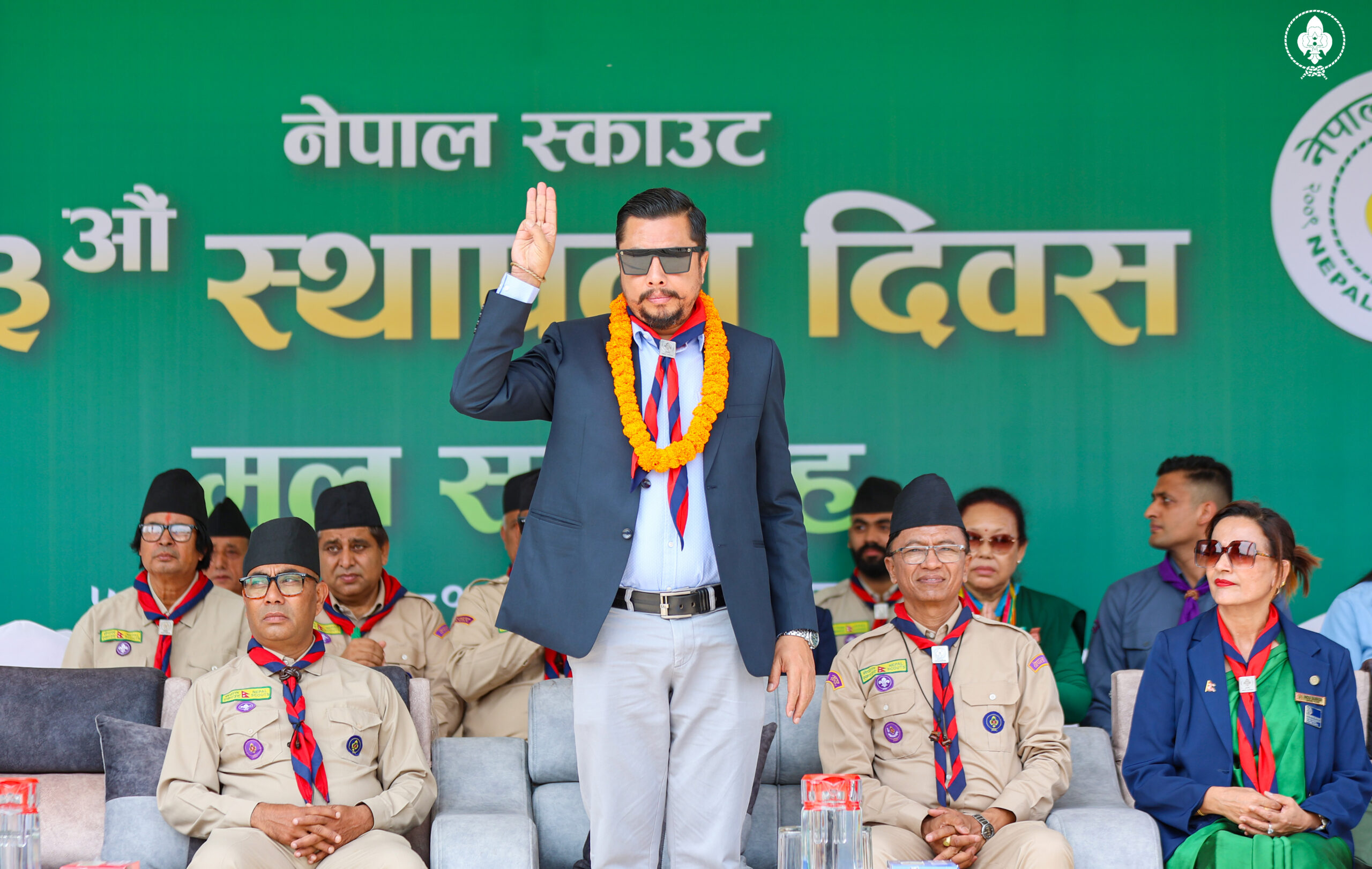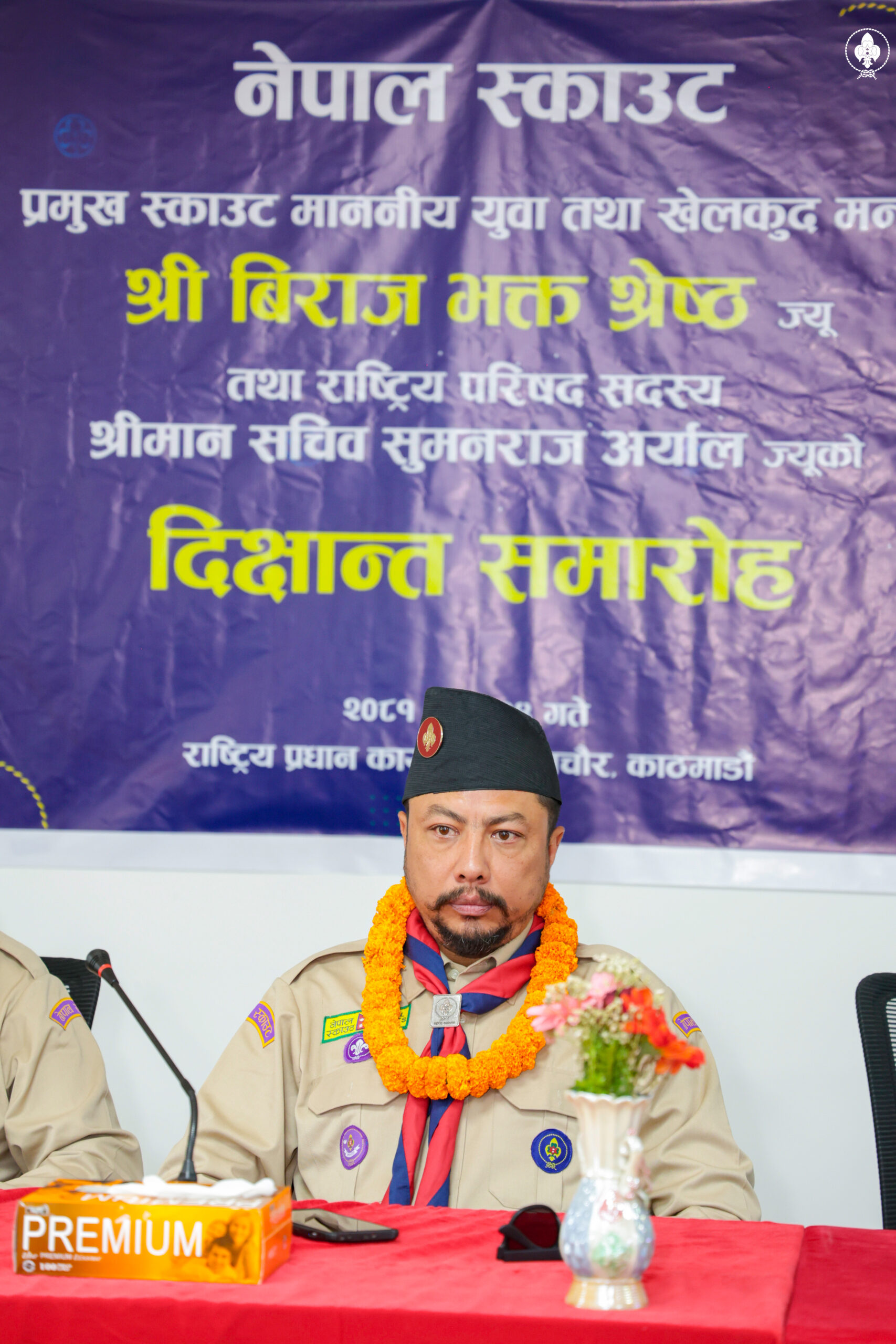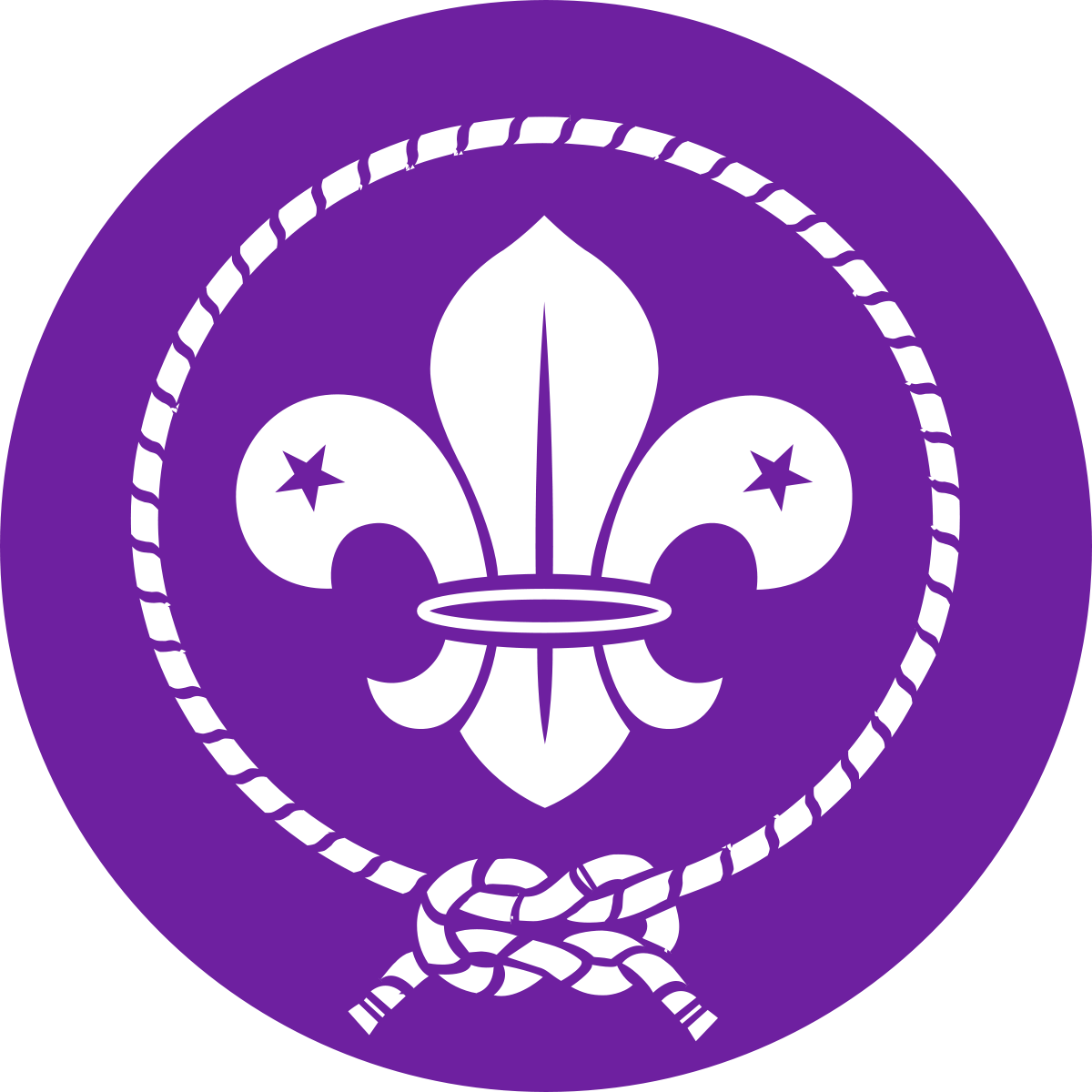World Adult in Scouting Policy by Mr. Paul Parkinson, WOSM Consultant & Leadership Development Framework by Ms. Annina Kainu, WAGGGS Volunteer
September 5, 2020
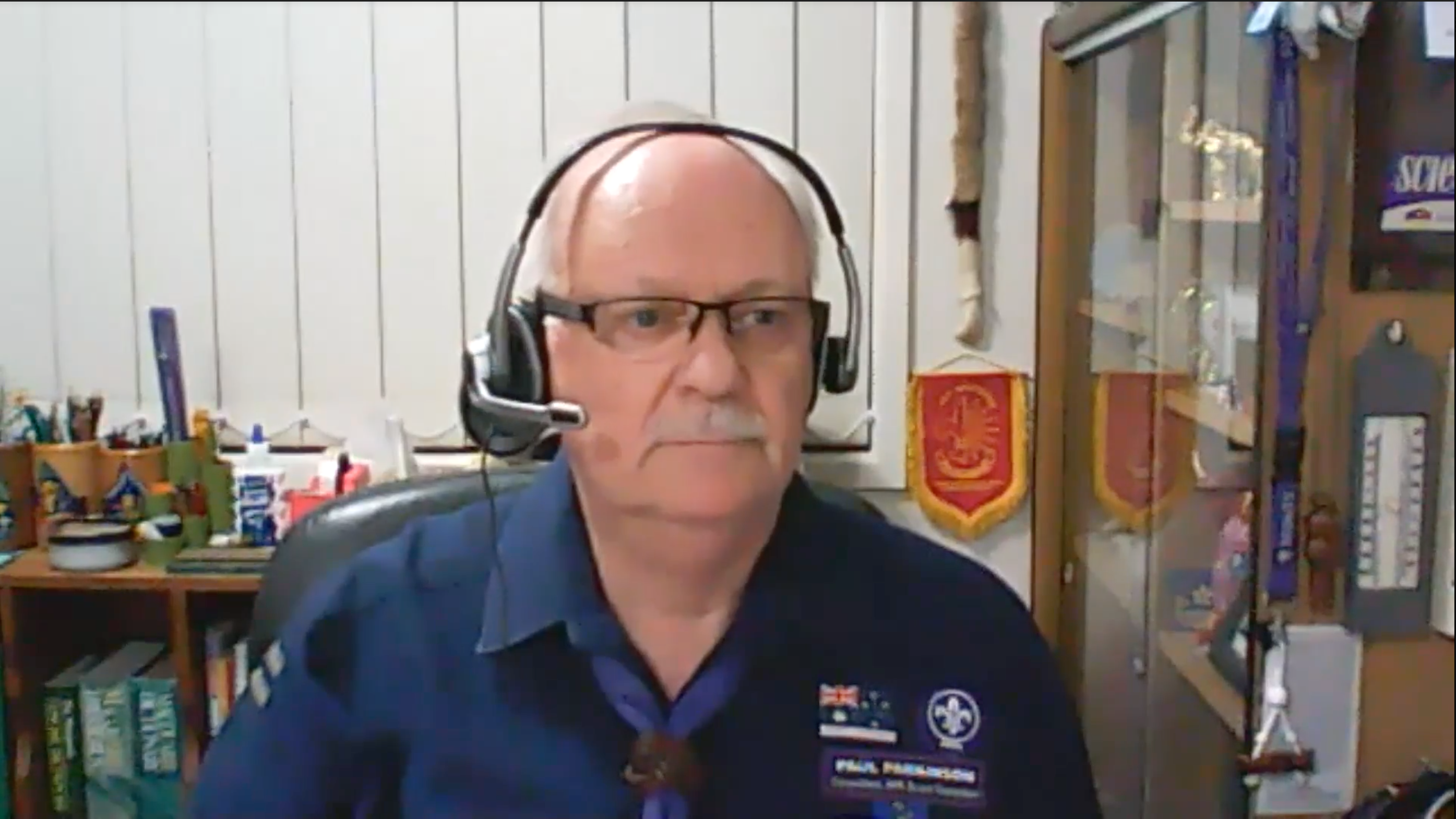
The reflection on the previous session held on 31st August 2020 on “Review Presentation on existing Youth Programme of Nepal Scouts” led by Mr. Devraj Ghimire, WOSM Consultant was presented by National Assistant Leader Trainer, Mr. Rabindra Basukala.
The ninth session of the Capacity Enhancement Webinar Series was divided into two sections: (I) World Adult in Scouting Policy (II) Leadership Development Framework. The main objective of the session was to deliver updated knowledge on the related policies on volunteers and Professionals Adults in Scouting.
The first section of the session was administered by Mr. Paul Parkinson, WOSM Consultant on the topic “World Adult in Scouting Policy”.
Firstly he presented “ Scouting could not have existed around the world without millions of adults and who currently support the movement by performing a wide range of roles or functions”. Next, he defines the Adults in Scouting and said
Adult in Scouting is:
- a systematic approach for supporting adults
- – designed to improve the effectiveness, commitment, and motivation of all adults in
Scouting, so that,
- – better programs are supported in the delivery by and for young people.
AIS is one of the three strategic areas that constitute an effectively functioning NSO:
- Adults in Scouting
- Youth Programme
- Organizational Development
He explained the strategic outcomes which are: Increase – Manage – Improve.
He explained the Adult Life Cycle which constitutes: i.) Recruitment, ii.) Performance and iii.) Decisions for the Future.
He further added how Recognition is important for maintaining members commitment and engagement which leads to higher retention in the long run and What are the Retention Strategy.
Lastly, he explained the Triennial Plan (2017-2020) which strengthened the implementation of all aspects of the Life Cycle of AiS. At the end of the first session, he put up 5 questions for the participants to answer.
Secondly, he also explained the adult life cycle and its three component which includes:
- Recruitment
- Performance
- Decisions for the Future
The second part of the session was moved forward by Ms. Annina Kainu, WAGGGS Volunteer on the topic “Leadership Development Framework”.

Firstly, She explained the mission and vision of the World Association of Girl Guides and Girl Scouts. Secondly, she explained the main purpose of Leadership Development training. Further, She talked about Leadership and WAGGGS and explained about WAGGGS leadership model. She also talked about leadership practice and WAGGGS leadership mindsets. She explained the six leadership mindsets of WAGGGS which are as follows:
- Leading Yourself – Reflective Mindset
- Leading Relationship – Collaborative Mindset
- Leading for Innovation – Creative and Critical thinking Mindset
- Leading for Impact – Responsible action Mindset
- Leading for Girls’ Empowerment – Gender equality Mindset
- Leading in Context – Worldly Mindset
She explained how WAGGGS actively promotes the training, learning and development of the Adult members to fulfill their roles and achieve their mission of WAGGGS. Furthermore, strategy for the training and development of Adult members was discussed. WAGGGS values are PROGRESSIVE which means :-
- P – Progressive
- R – Recognition of Spiritual Dimension
- O- Open to all
- G – Global Commitment
- R – Responsibility
- E – Equal opportunities
- S – Service – mindedness
- S – Sustainability
- I – Integrity
- V – Voluntary Commitment
- E – Environmentally Conscious
The principles fundamental to WAGGGS and appropriate to use in many adult learning environments and organizations are Patrol System, Experiential Learning, Progressive self- development, intergenerational learning, Outdoor activities, Service in the Community, etc.
She explained the volunteer’s motivational life cycle and their journey showing a cycle chart showing different stages such as Planning- Recruitment and Selection- Induction and Training – Supervision and Support- Evaluation and Recognition. The competence levels are explained showing different stages and the improvement in those stages.
Lastly, she reflected the WAGGGS leadership mindset and Volunteer management.
The ninth day of the session entitled “World Adult in Scouting Policy and Leadership Development Framework” was actively attended by 62 participants. Mr. Bijendra Dhowju, Member, Ad-Hoc Committee concluded the session with his closing remarks.

